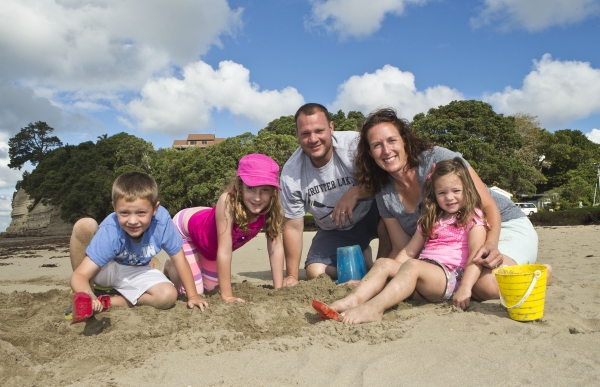When it comes to second-guessing the weather, everyone has an opinion. NIWA meteorologist Chris Brandolino has heard most of them. Here he explains the magic, mystery – and science - of weather forecasting.
Chris, sometimes it seems like weather forecasters get it all wrong – just how accurate is your average weather forecast?
Typically a weather forecast is more accurate the closer are to the point in time of the forecast. What I mean by that is that the further you look into the future, the less accurate the forecast. We can be confident one, two or three days out. Up to a week and there’s some unknowns.
The reason for that is because precipitation, especially convection or rain that is driven by heat or rapidly rising air. To forecast that you need really high resolution weather models to simulate that in the atmosphere. If you can’t do that, you can’t get the best results.
So what do you mean by a weather model?
A weather model is a simulation or projection of the state of the atmosphere over a period of time. It is based, like all scientific models, on a set of observations, data and calculations. Weather models include observations from weather balloons, ground stations and satellites that are combined with equations that represent the rules of the atmosphere. When all that is combined into something as high-powered as the NIWA supercomputer, we have an ability to trust its predictions about similar situations and therefore make our forecasts
Is the supercomputer the first place you look when you start to prepare a weather forecast?
The first thing I want to know when preparing a forecast is what’s happening right now. Understanding “the now” through observational data and comparing it to our computer modelling is crucial. If the two are fairly similar then I can feel pretty confident that my forecast for tomorrow or the next day might be right.
The least challenging part of the forecast is temperature projections and the most challenging precipitation. Precipitation – or rainfall, sleet, hail etc – is driven by rising air and you need really high resolution models to simulate that in the atmosphere. If you can’t do that, you can’t get the best results.
Also small differences have a big impact. I always say it’s like a dripping tap. When you see it dripping, the drops don’t look like much but over time they add up to litres and litres of water. If you don’t get “the now” right, it can make a huge difference in a fairly short space of time.
Are there any other challenges?
There are a couple – the Earth is 70 per cent water so collecting data is challenging which is where satellites help to bridge the gap. Having the ability to crunch the data at a high resolution is also important.
But there’s also the issue of scientists who like to deal in probabilities versus most people who just want to know if it will rain. A scientist is more likely to ask: “What is the probability of the temperature going higher or lower than 11°C?” Someone else will just say: “Is it going to be hot today?”
What are the differences between forecasting the weather for a small geographic area compared to the whole of New Zealand?
In smaller areas people expect finer detail and you have to know how the landscape affects places; there are microclimates across the country which makes a more general forecast more difficult. It really depends on where you are. In Canterbury for instance, the Southern Alps are a key influence on climate, in Wellington it’s Cook Strait. But generally because New Zealand is an island nation the ocean tends to temper the really extreme weather other countries experience – don’t get me wrong, we’re not immune to it but it’s not generally as bad.
What’s the most common question you get about the weather and how do you answer it?
Sometimes I get asked how come I have a job where it’s okay to be half right all the time but mostly I get asked if it’s going to rain. I say check out NIWA weather, that’ll tell you.
Visit www.weather.niwa.co.nz
Is a red sky at night really a shepherd’s delight?
Sometimes. Let’s just say there’s some truth to it but I wouldn’t bet the farm on it. Check out NIWA weather instead!
Chris Brandolino and his family.

